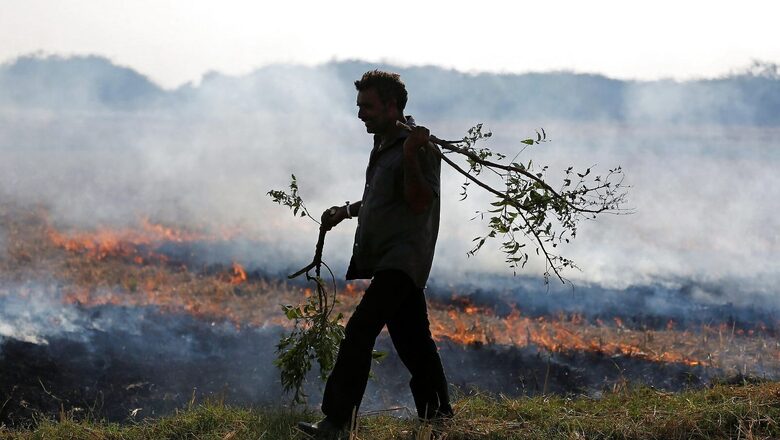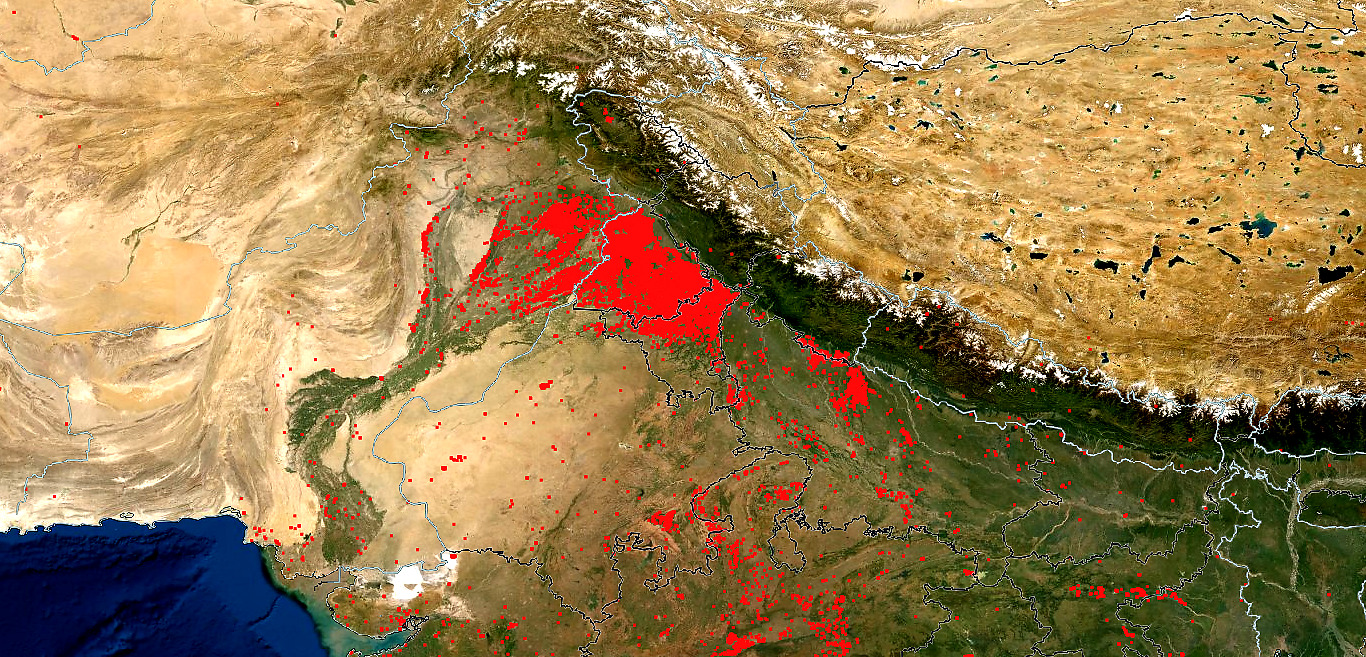
views
Despite several lofty promises made by the Punjab and Haryana governments, there seems to be no end in sight to the problem of stubble burning as fire counts rise rapidly across the region. Over a thousand incidents of stubble fires are now being recorded daily from the states, slowly turning the air toxic.
The prevailing meteorological conditions may have turned things around for Delhi by curtailing the share of stubble burning in the capital’s air quality to just 6 per cent and allowing it to ring in its cleanest Diwali since 2015, but the respite may not last very long. A thin blanket of haze has already begun to envelop the north-western states as seen from the satellite images, paving way for a smoggy winter ahead.


70% OF CASES FROM PUNJAB ALONE
The Aam Aadmi Party (AAP)-led Punjab government has patted itself on the back for a much cleaner Diwali this year, but the raging fires and burnt fields across various districts of the state say otherwise. Of the total 9,510 incidents this season, at least 7,000 were reported from Punjab alone.
“Nearly 80% of farmers in Punjab are small or marginal with less than five acres of land, and no machines for stubble management reach their fields. The government’s focus has only been on some awareness drives as if farmers do not know about the effects of pollution. Why don’t they address the root cause instead of just putting all blame on farmers every year? See how the rains have damaged crops far and wide. Why can’t they help us bear the extra cost?” asked Punjab’s farm union leader and Sanyukt Samaj Morcha chief Balbir Singh Rajewal.
While a large number of farmers continue to set their harvested fields ablaze, the Commission for Air Quality Management (CAQM) for Delhi yet again directed the Punjab government to step up action in a meeting held on Thursday. Ruing the lack of adequate action and efforts by the Punjab government, the CAQM shared data highlighting how 70 per cent of farm fires are being reported only from six districts namely Amritsar, Firozpur, Gurdaspur, Kapurthala, Patiala and Tarn Taran. With only about 39 per cent of sown area in Punjab harvested so far, the worst is perhaps yet to come.
RISING CROP FIRES FROM HARYANA
While the total area under paddy cultivation is less in Haryana as compared to Punjab, the harvested fields are being set ablaze across several of its districts too. Over 1,495 fire counts have been reported since the start of the season in the state, with the graph only going up since last week.
The resentment among farmers is palpable who rued that they are yet to receive the amount of Rs 1,000 per acre for in-situ management of stubble (bailing) that the BJP-led Haryana government promises every year.
“It’s only words. Farmers who are managing stubble with machines are doing so from their own efforts, without any help from the government. The compensation they talk of barely reaches any farmer and exists only in their government records,” says Haryana’s farm union leader Karam Singh Mathana from Bhartiya Kisan Union (Charuni).
SHORT-TERM SOLUTIONS
While most farmers say they are yet to get access to subsidised machines and rising diesel costs make it difficult to use them, the Centre has blamed states for the lack of coordinated action, adding that it has already provided as many as 2.07 lakh machines to the states in the last four years and 47,000 machines are being provided during the current year.
According to the government, Rs. 601.53 crores has already been released by the Centre so far and of the amount given in the last four years, about Rs 900 crore is available with the states.
With the tussle between states and Centre continuing this year too, experts say providing financial incentives or subsidised machines will only address the issue temporarily and a long-term action plan is the need of the hour.
“Until the government helps Punjab’s farmers from diversifying away from paddy and ensuring a healthy transition to other crops, this problem of stubble burning may not end. People are not just bearing the brunt of toxic air, but plummeting water levels and worsening soil health — one cannot address one issue at the cost of the other,” says noted economist Prof Gian Singh from Punjabi University.
Read all the Latest India News here




















Comments
0 comment